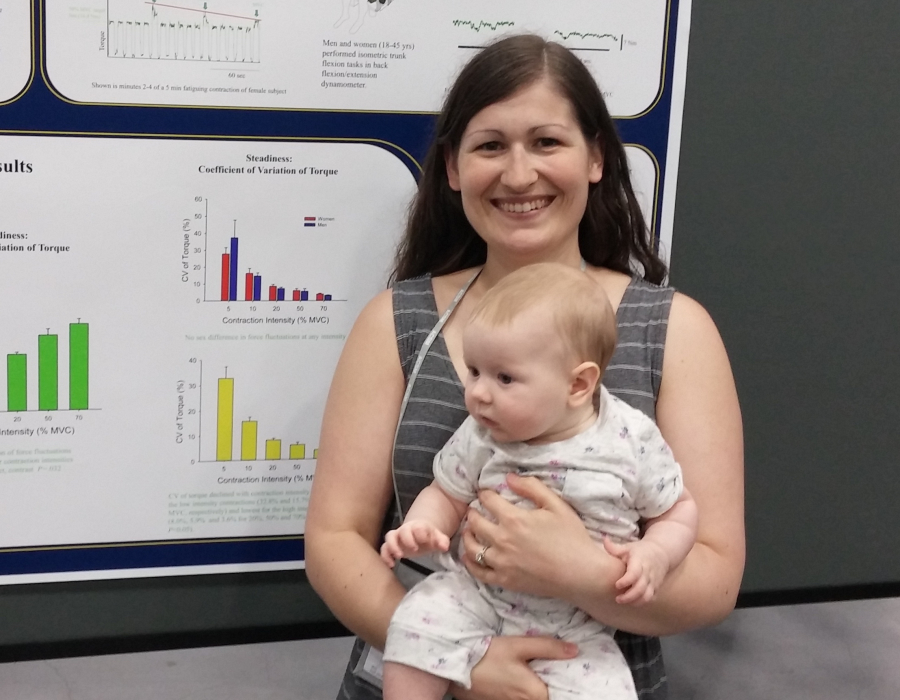
2015-16 AAUW American Fellow Rita Deering and her baby
The labor force participation rate of mothers with children under 18 was 72.3% in 2019. For single, widowed or divorced moms, the rate was 77.6%, according to the Bureau of Labor Statistics.
- Mothers are less likely to work when their children are young than they are when children are older: In 2019, the labor force participation rate of mothers with children under 6 was, at 66.4%, For those whose youngest child was age 6 to 17, the labor force participation rate was 76.8%. Among mothers with children under age 3, the participation rate of married mothers was lower than the rate of mothers with other marital statuses — 62% versus 66%.
- Dads with jobs remain more likely to work full time than working mothers: In 2019, 96% of employed fathers worked full time, compared with 78% of employed mothers. Among employed mothers, those with older children were more likely to work full time than those with younger children: 80% of employed mothers with children ages 6 to 17 worked full time, compared to 75% of mothers with children under age 6. Employed fathers with younger and older children were about equally likely to work full time.
- About 43% of women workers had at least one year with no earnings: This is at least twice the rate of men, according to the Institute for Women’s Policy Research. And the penalties for taking time out of the workforce are high: For women who took just one year off from work, their annual earnings were 39% lower than women who worked all 15 years between 2001 and 2015.
- Child care issues are an impediment to mothers in the workforce: Half of U.S. families report difficulty finding child care, according to a survey by the Center for American Progress. Women reported making job decisions based on child care considerations rather than in the interest of their financial situation or career goals: Slightly more than half of respondents who identified as homemakers said that they would “look for a job” if they had access to more affordable child care. And a third of parents in part-time jobs said they would work more hours if they had more affordable and reliable child care.
- Having children limits parents from advancing in their careers: About one-in-five working parents, including 23% of working moms and 15% of working dads, say they have turned down a promotion because they were balancing work and parenting responsibilities, according to a Pew Research Center analysis of Census Bureau Current Population Survey data. Another study found that 17% say they have been passed over for an important assignment and 16% say they have been passed over for a promotion because they have children. Mothers are more likely than fathers to report each of these experiences.
Related
The Future Workforce: More Diverse than Ever
Workplace and Economic Equity

Work Smart Trainings
Programs

